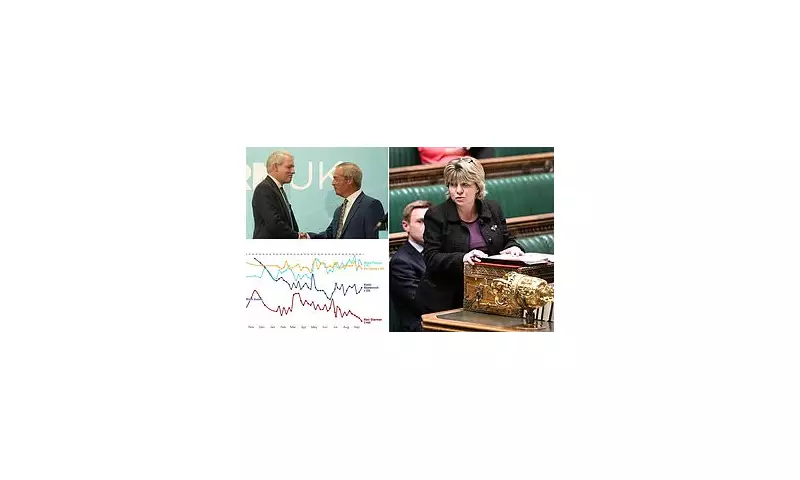
Westminster is reeling from another political earthquake as former Conservative MP Lee Anderson has dramatically defected to Nigel Farage's Reform UK party. The move signals a deepening crisis for Rishi Sunak's Tories and comes as Reform extends its lead over Labour in a stunning new poll.
A Stunning Defection Rocks Westminster
Lee Anderson, the former Tory deputy chairman, has crossed the floor to join Reform UK, dealing a significant blow to Prime Minister Rishi Sunak. The Ashfield MP's defection represents a major coup for Nigel Farage's insurgent party and underscores the growing discontent within Conservative ranks.
Mr Anderson announced his decision in a move that has sent shockwaves through Parliament. His departure follows weeks of speculation and growing tensions between traditional Conservative values and the party's current direction.
Reform UK's Poll Surge Creates Labour Panic
Meanwhile, a devastating new poll reveals Reform UK has extended its lead over Sir Keir Starmer's Labour Party to four points. The survey shows Reform on 21% compared to Labour's 17%, while the Conservatives trail at just 19%.
This remarkable surge has reportedly caused panic among Labour MPs, with several allegedly considering their own defection to Farage's outfit. The poll represents Sir Keir Starmer's worst ratings since becoming leader, dropping to a new low of -20.
Political Earthquake Reshapes UK Landscape
The dramatic developments suggest a fundamental realignment of British politics is underway. Reform UK's growing appeal among traditional Conservative and Labour voters indicates widespread dissatisfaction with the established political parties.
Nigel Farage's party appears to be capitalising on concerns about immigration, economic policy, and what many voters perceive as a disconnect between Westminster elites and ordinary citizens.
Political analysts suggest this could be the most significant shift in UK politics since the Brexit realignment, with potential implications for the next general election and beyond.





